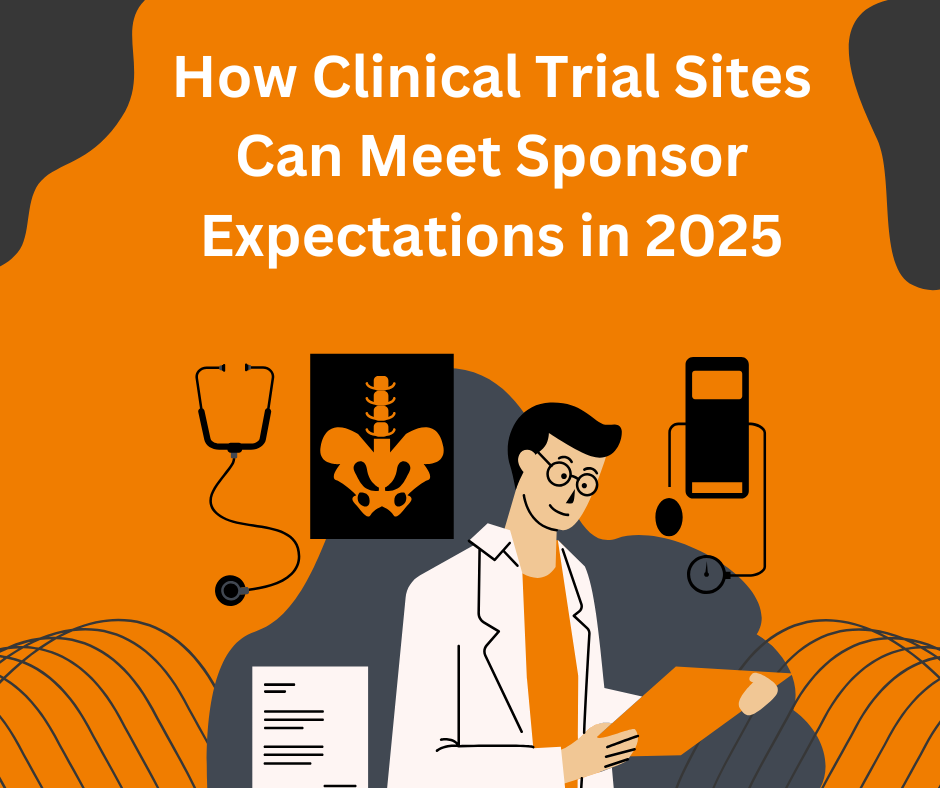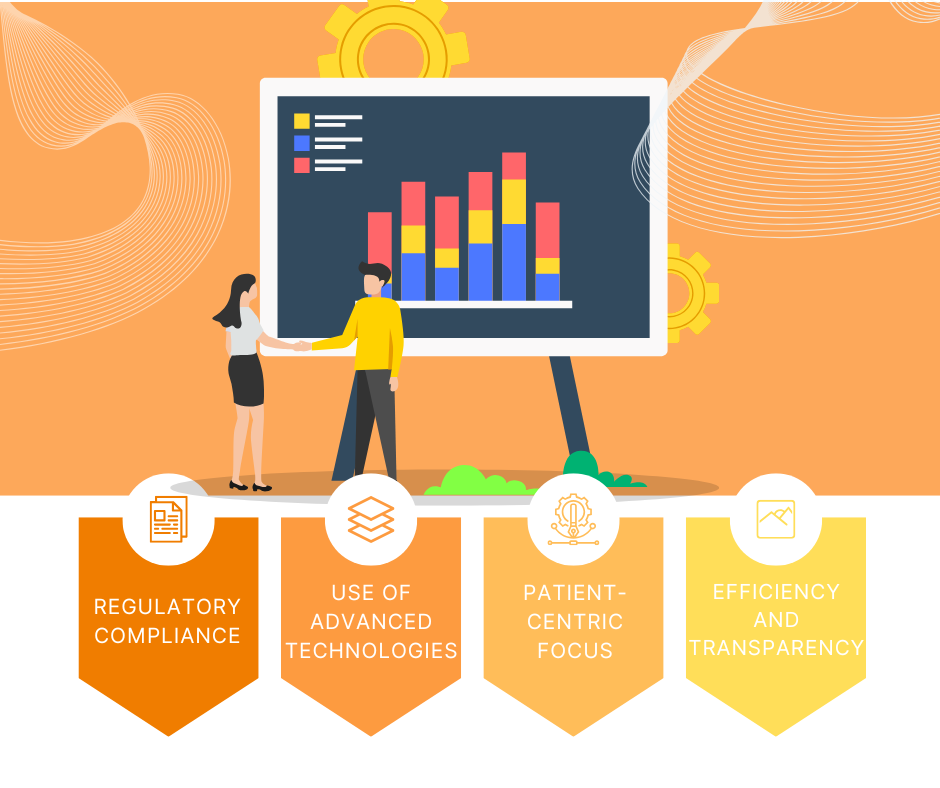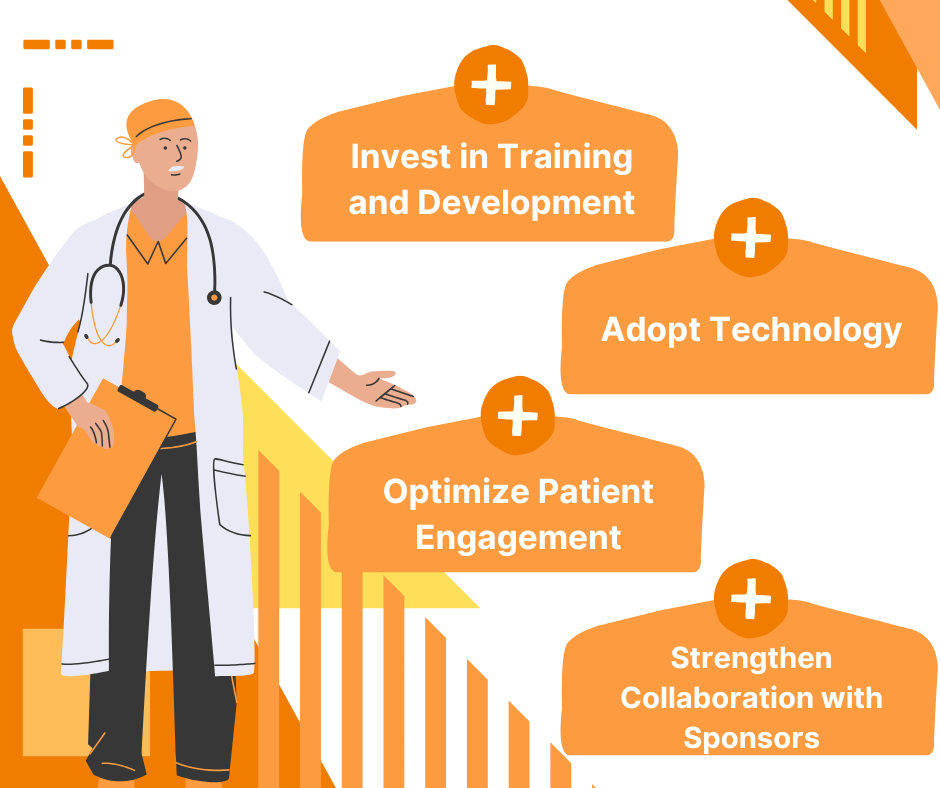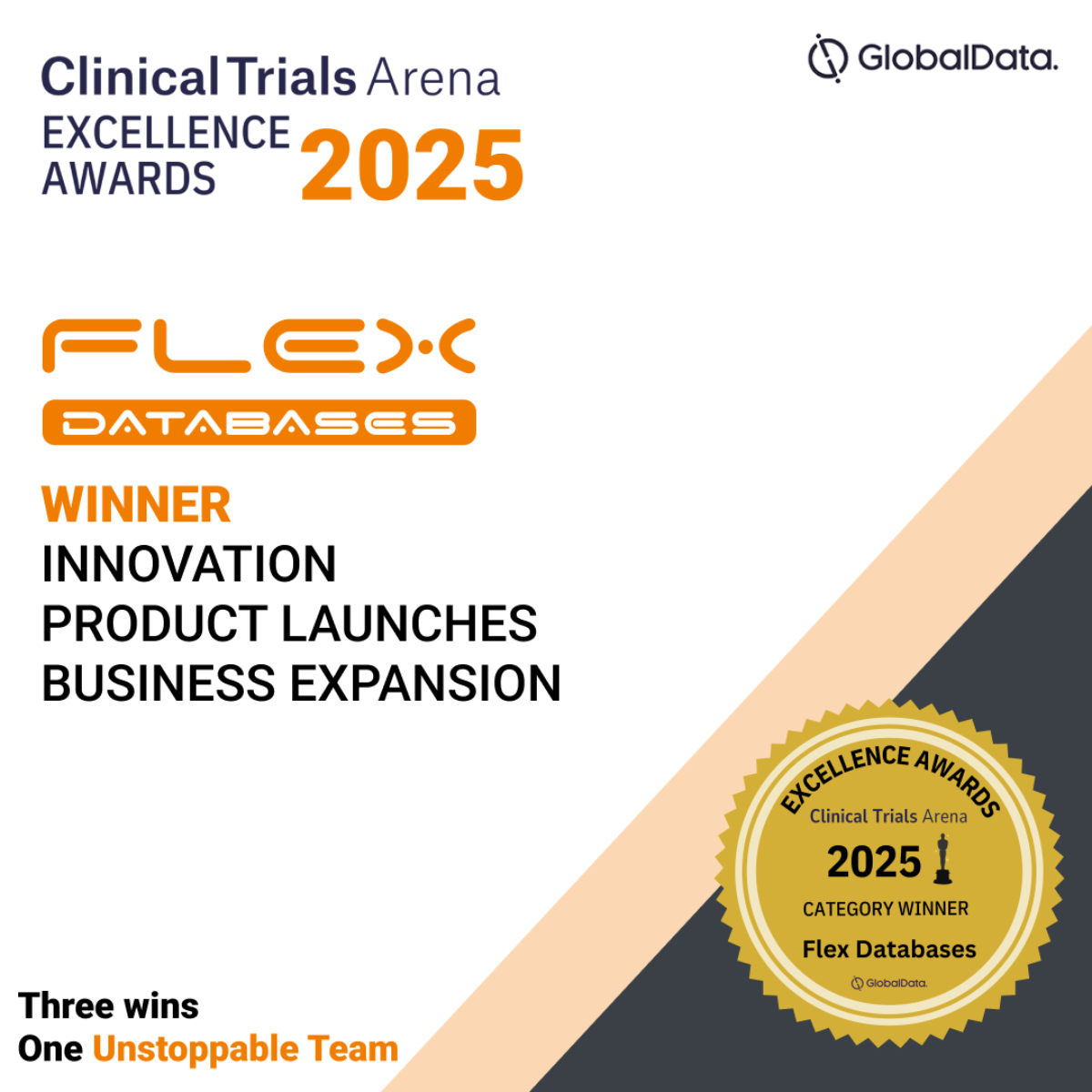How Clinical Trial Sites Can Meet Sponsor Expectations in 2025
December 18, 2024

Clinical trials are becoming more complex every year, and sponsors are raising the bar for what they expect from sites. They want faster processes, more accurate data, and better ways to keep patients engaged – all while staying compliant with ever-evolving regulations.
As we look ahead to 2025, these demands will only grow. New technologies like AI, wearable devices, and advanced trial management systems are changing how studies are run. At the same time, stricter regulations mean sites need to be more diligent than ever.
For trial sites, 2025 is a critical year to step up. It’s not just about meeting sponsor expectations – it’s about standing out in a fast-changing, competitive world.

Understanding Sponsor Expectations for 2025
Sponsors have high expectations for clinical trial sites, and understanding these key areas is essential to building successful partnerships. With the right tools, like Flex Databases, sites can meet—and even exceed—these demands.
Timely and Accurate Data
Data is at the heart of every clinical trial. Sponsors rely on sites to provide real-time, high-quality data that they can trust to make critical decisions. Delays or inaccuracies can derail timelines and compromise trial outcomes, making precise and timely data collection a top priority.
Flex Databases provides integrated solutions like EDC and CTMS that ensure seamless data capture, tracking, and reporting, giving sponsors access to reliable data whenever they need it.
Regulatory Compliance
With global regulations becoming stricter, sponsors expect sites to stay fully compliant with both international guidelines and local requirements. From ethical approvals to data privacy laws, sites must navigate these complexities with precision to avoid risks and delays.
Flex Databases simplifies compliance with robust eTMF and CTMS tools that ensure regulatory documentation is well-organized, secure, and audit-ready at all times.
Use of Advanced Technologies
Gone are the days of paper-based processes. Sponsors now expect sites to embrace modern tools like Clinical Trial Management Systems (CTMS), Electronic Data Capture (EDC), and Electronic Trial Master Files (eTMF). These technologies not only streamline operations but also improve accuracy, visibility, and collaboration.
Flex Databases offers a comprehensive suite of eClinical tools that integrates CTMS, eTMF, and can be integrated with any tool or system. As well, our platform provides essential tools like Quality Management System, Pharmacovigilance Software, Project Management & Budgeting modules.
This integration allows sites to manage all aspects of the trial in one platform, increasing efficiency and reducing the risk of errors.
Patient-Centric Focus
Patients are central to every trial, and sponsors expect sites to adopt strategies that enhance patient recruitment, engagement, and retention. This means creating a seamless experience for participants – from clear communication to flexible scheduling and ongoing support throughout the study.
Flex Databases supports patient-centric approaches by enabling sites to track patient interactions, manage scheduling efficiently, and maintain transparent communication – all while keeping data secure and compliant.
Efficiency and Transparency
Sponsors value sites that operate efficiently and communicate openly. They want faster trial startup times, streamlined workflows, and a transparent approach to sharing progress and addressing challenges. Clear and proactive communication is key to building trust and ensuring smooth operations.
Flex Databases empowers sites with tools that optimize trial management workflows, automate repetitive tasks, and offer real-time dashboards for better visibility into trial progress. This transparency builds confidence with sponsors and helps address potential issues early.
By leveraging Flex Databases’ suite of tools, clinical trial sites can confidently meet sponsor expectations, enhance operational efficiency, and position themselves as trusted partners in delivering successful trials.
Meeting sponsor expectations requires clinical trial sites to adopt proactive strategies that address key challenges. Studies show that over 70% of clinical trial delays are attributed to site-related issues, including insufficient training, slow patient recruitment, and non-compliance with evolving regulations. Additionally, 85% of sponsors state that they prefer sites with advanced technological capabilities, such as integrated CTMS, eTMF, and EDC systems, to ensure streamlined operations and data accuracy.
To meet these demands, sites must prioritize training, leverage AI-powered tools to improve efficiency, and focus on patient-centric strategies. For instance, sites using AI for eTMF management have reported a 40% reduction in administrative workloads and a 30% improvement in audit readiness. These proactive measures not only address sponsor expectations but also position sites as reliable and high-performing partners in clinical research.
Practical Strategies for Sites to Meet Expectations

Invest in Training and Development
Equip your team with the skills needed to manage advanced tools and keep up with evolving regulations. Sponsors expect well-trained staff who can efficiently operate technologies like eTMF, CTMS, and EDC while ensuring compliance with strict guidelines. Regular training sessions and certifications can help bridge skill gaps and boost overall site performance.
Adopt Technology
Embracing the right technology can transform site operations. Integrated platforms like Flex Databases streamline document management, communication, and data sharing, which are critical for maintaining efficiency and transparency.
AI-powered tools in eTMF take this a step further by automating tasks such as document classification, metadata assignment, and quality checks. These features not only save time but also improve accuracy, compliance, and scalability. With AI, sites can eliminate manual errors, ensure audit-readiness, and provide sponsors with real-time insights into document status—all of which are essential for successful trials.
Optimize Patient Engagement
- Use Digital Recruitment Tools: Leverage social media, online platforms, and data-driven approaches to identify and engage suitable participants more effectively.
- Create Patient-Friendly Processes: Simplify processes like consent forms, scheduling, and follow-ups to enhance retention. Providing a positive patient experience ensures higher engagement and better study outcomes.
Strengthen Collaboration with Sponsors
Building a strong relationship with sponsors is key to trial success.
- Establish Regular Communication Channels: Keep sponsors informed with consistent updates on trial progress and challenges.
- Set Clear Expectations and Responsibilities: Define roles, timelines, and deliverables from the start to minimize misunderstandings and ensure smooth collaboration.
By investing in training, adopting cutting-edge technology like AI in eTMF, prioritizing patient engagement, and fostering strong sponsor relationships, sites can meet—and exceed—the expectations placed upon them. These strategies not only improve site performance but also create lasting partnerships with sponsors.
Looking Beyond 2025
As we look beyond 2025, the sponsor-site relationship is set to evolve further, driven by emerging trends that will redefine how clinical trials are conducted. Sites that stay proactive and adaptable will be best positioned to meet these changes and continue building strong, collaborative relationships with sponsors. Here are some key trends to watch:
Decentralized Trials (DCTs)
Decentralized trials are becoming increasingly popular, driven by advances in technology and the need for more patient-centric approaches. With DCTs, patients can participate in trials from their own homes, reducing the need for frequent site visits. This shift could significantly expand recruitment pools, improve patient retention, and reduce overall trial costs. Sites will need to embrace remote monitoring, telemedicine, and digital tools to stay involved in the patient experience and manage data collection effectively.
How Sites Can Adapt:
- Invest in telemedicine platforms and remote monitoring tools.
- Train staff to manage virtual patient interactions and digital data management.
- Establish clear protocols for maintaining compliance and data security in a decentralized environment.
Precision Medicine
As healthcare becomes more personalized, precision medicine is expected to play a larger role in clinical trials. This approach tailors treatments based on an individual’s genetic makeup, lifestyle, and environment, making trials more targeted and effective. However, precision medicine requires access to advanced technologies and extensive data, which could create both opportunities and challenges for trial sites.
How Sites Can Adapt:
- Incorporate genetic and biomarker testing into trial protocols.
- Develop capabilities to handle complex patient data while ensuring compliance with privacy regulations.
- Collaborate with sponsors on innovative trial designs that leverage precision medicine approaches.
Artificial Intelligence and Machine Learning
AI and machine learning are already reshaping clinical trials, particularly in areas like patient recruitment, data management, and monitoring. By 2025 and beyond, AI will likely become even more integrated into clinical trial workflows, providing real-time insights, predicting patient outcomes, and optimizing trial designs.
How Sites Can Adapt:
- Invest in AI-driven tools to enhance trial efficiency and decision-making.
- Use predictive analytics to identify potential risks and proactively address issues before they arise.
- Leverage AI for faster and more accurate data analysis, improving overall trial success rates.
Virtual Clinical Trials (VCTs)
Virtual clinical trials are set to expand as technology makes it easier to conduct studies remotely. VCTs integrate a variety of technologies, including wearable devices, telehealth, and digital platforms, to enable trials to run virtually. This could reduce patient burden and increase trial diversity, but it also requires sites to adopt new operational models.
How Sites Can Adapt:
- Enhance digital infrastructure to support virtual trials.
- Train staff to manage hybrid models that incorporate both in-person and virtual trial elements.
- Stay updated on evolving regulations for virtual trials to ensure compliance and maintain sponsor confidence.
Stay Proactive and Adaptable
Clinical trial sites must remain flexible and proactive to thrive in this evolving landscape. Staying ahead of emerging trends requires continuous learning, strategic partnerships with technology providers, and an ongoing focus on patient-centric care.
Sites that embrace new technologies, maintain strong communication with sponsors, and foster a culture of innovation will be well-positioned to meet the challenges of the future and continue to deliver successful trial outcomes.
By anticipating these trends and taking proactive steps today, sites can build strong foundations for success in clinical trials beyond 2025.



